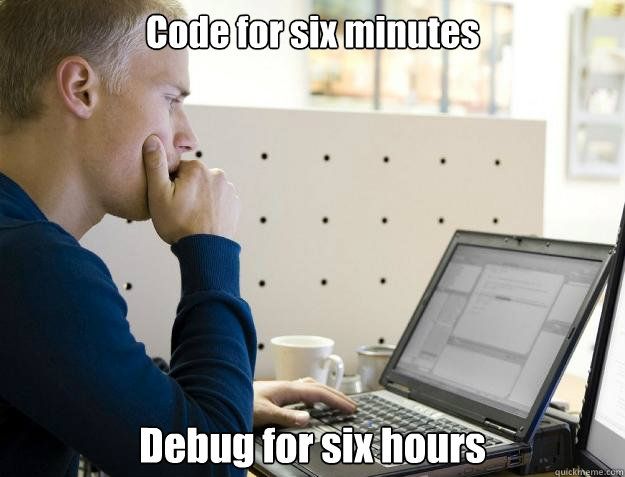Table of contents
No headings in the article.
"Debugging is like being the detective in a crime movie where you're also the murderer." - Filipe Fortes
Debugging is an essential part of any programming project. As a developer, you'll often encounter bugs in your code that need to be fixed. Debugging can be a time-consuming and frustrating process, but with the right approach, it can also be a rewarding experience that helps you improve your programming skills.
Here are some tips for effective debugging:
Reproduce the problem: The first step in debugging is to reproduce the problem. This means identifying the specific steps that cause the bug to occur. Once you can consistently reproduce the problem, you can start looking for the root cause.
Use print statements: One of the most effective debugging techniques is to use print statements. By adding print statements at key points in your code, you can track the flow of data and identify where the bug is occurring. This can be especially helpful for identifying issues with variable values or loops.
Use a debugger: Many programming languages come with built-in debuggers that allow you to step through your code line by line. This can be a powerful tool for identifying bugs and understanding how your code is executing.
Check your assumptions: Often, bugs occur when your code doesn't behave as you expected it to. Make sure you check your assumptions about how your code should work, and verify that they're correct.
Test edge cases: Sometimes bugs only occur in certain edge cases, such as when a variable has an unexpected value or when the input is outside the expected range. Make sure you test your code with a variety of input values to identify these edge cases.
Break the problem down: If you're struggling to identify the root cause of a bug, try breaking the problem down into smaller pieces. This can help you isolate the issue and identify where the problem is occurring.
Get a fresh perspective: Sometimes, you can become so entrenched in your code that you can't see the forest for the trees. Getting a fresh perspective from a colleague or friend can help you identify issues that you might have missed.
In conclusion, debugging can be a challenging process, but with the right approach, it can also be a rewarding experience. By following these tips, you can improve your debugging skills and become a more effective programmer. Remember, debugging is an essential part of the development process, so don't be afraid to dive in and start finding those bugs!
